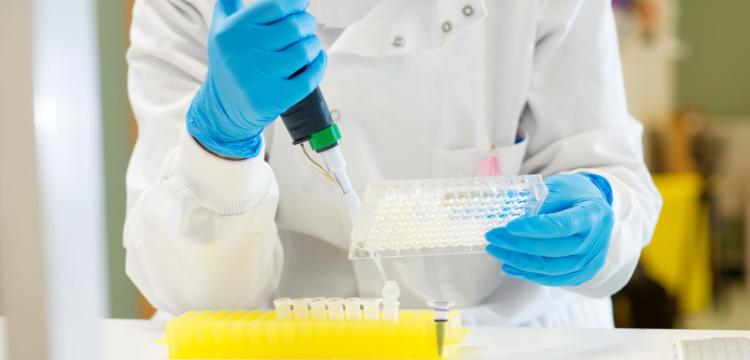Study by NI Cancer Registry reveals adverse impact of Covid-19 on entire cancer patient pathways
A study by the NI Cancer Registry reveals the adverse impact of COVID-19 on the entire cancer patient pathway in NI; that is the patient’s journey from suspicion of cancer through clinical investigations, patient diagnosis, and treatment to survival.

The research is presented by the NI Cancer Registry (NICR) at an event at Queen's University today, Wednesday 7 June.
It showed the COVID-19 pandemic had profound impact across the entire cancer patient pathway with a shift from early to more advanced stage disease.
The study compared April to December 2020 to the equivalent period in 2018-2019; and showed there were almost 1,000 fewer or ‘missing’ cases with greater proportions being diagnosed by emergency admission.
It also revealed new (incident) cancer cases decreased by 13% (almost 1,000) from an average of 7,724 in Apr-Dec 2018-2019 to 6,748 in Apr-Dec 2020.
In addition, there was a major impact on treatment with lower rates of surgery and radiotherapy and a significant reduction in the proportion of people who survived to one year following their cancer diagnosis.
Additional key findings and results include:
- Reductions differed by tumour type (e.g. Lung-7%, Female breast-11%, Colorectal-12%, Prostate-14%).
- There were significant differences across age cohorts and deprivation quintiles, with reductions greatest for younger people (<55 yrs;19% decrease) and those from less deprived areas (22% decrease).
- A significantly higher proportion had an emergency admission prior to diagnosis (16% compared to 20%) and a significantly lower proportion diagnosed pathologically (85%-to-83%).
- There was significant stage shift to more advanced disease, with lower proportions of cases diagnosed at an early stage (29% compared to 25%) and higher proportions diagnosed at a late-stage (21% compared to 23%).
- A significantly lower proportion of patients received surgery (41% compared to 38%) and radiotherapy (24% compared to 22%) with no significant differences in chemotherapy or hormone therapy. A significantly higher proportion of patients did not receive any treatment (29% compared to 33%)
- One-year observed survival (death from any cause) significantly decreased from 73.7% to 69.8% and one-year net survival (death from cancer-related causes) decreased from 76.1% to 72.9%.
Dr Damien Bennett, Interim Director of the NICR from the Centre for Public Health at Queen's University Belfast, said: “We suspected COVID-19 would impact on cancer patients and services across the entire patient journey and have now produced good evidence to show this. NICR compiled data and analysed across the patients’ pathway, from presentation, diagnosis, stage, treatment to survival. Our work shows that, alongside about 1000 “missing cases”, there has been a shift to more advanced disease, with lower rates of surgery and radiotherapy and poorer survival one year post diagnosis.
“We need to continue to monitor key cancer statistics to assess for recovery as well as trends in pathologically diagnosed cancers which have recently shown some signs of recovery.”
Recently the NICR partnered with charity NIPANC to publish the first Northern Ireland Pancreatic Cancer Audit in over ten years.
It has also begun an extensive research project with Breast Cancer Now examining the impact of COVID-19 on breast cancer patients. This will analyse the impact of COVID-19 on breast cancer patients and make recommendations to improve patient care and outcomes.
This mixed-methods study will use data from patient clinical records as well as an online patient survey and in-depth individual interviews to report on the lived experience of breast cancer patient during the pandemic.
Media
Media inquiries to Sian Devlin at s.devlin@qub.ac.uk